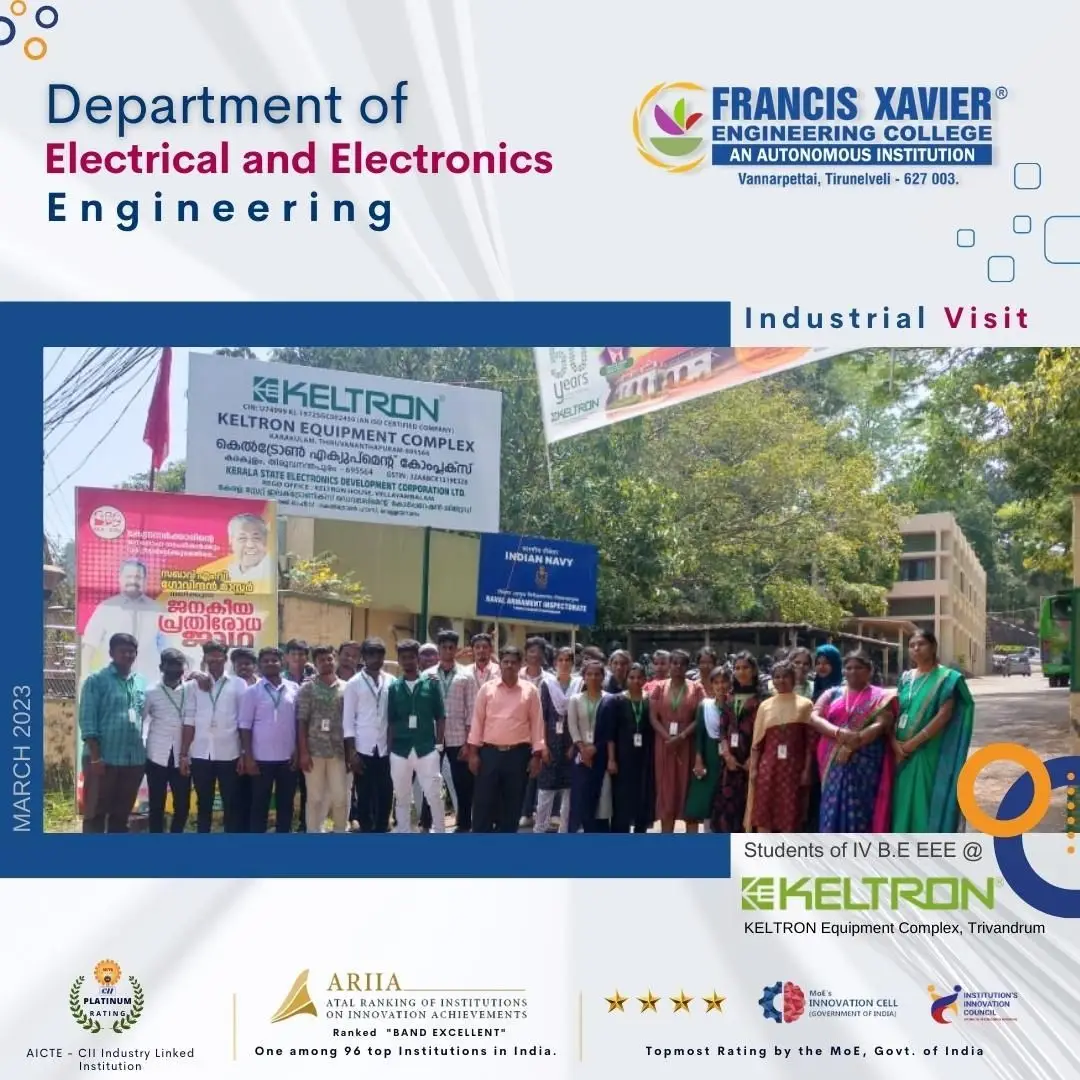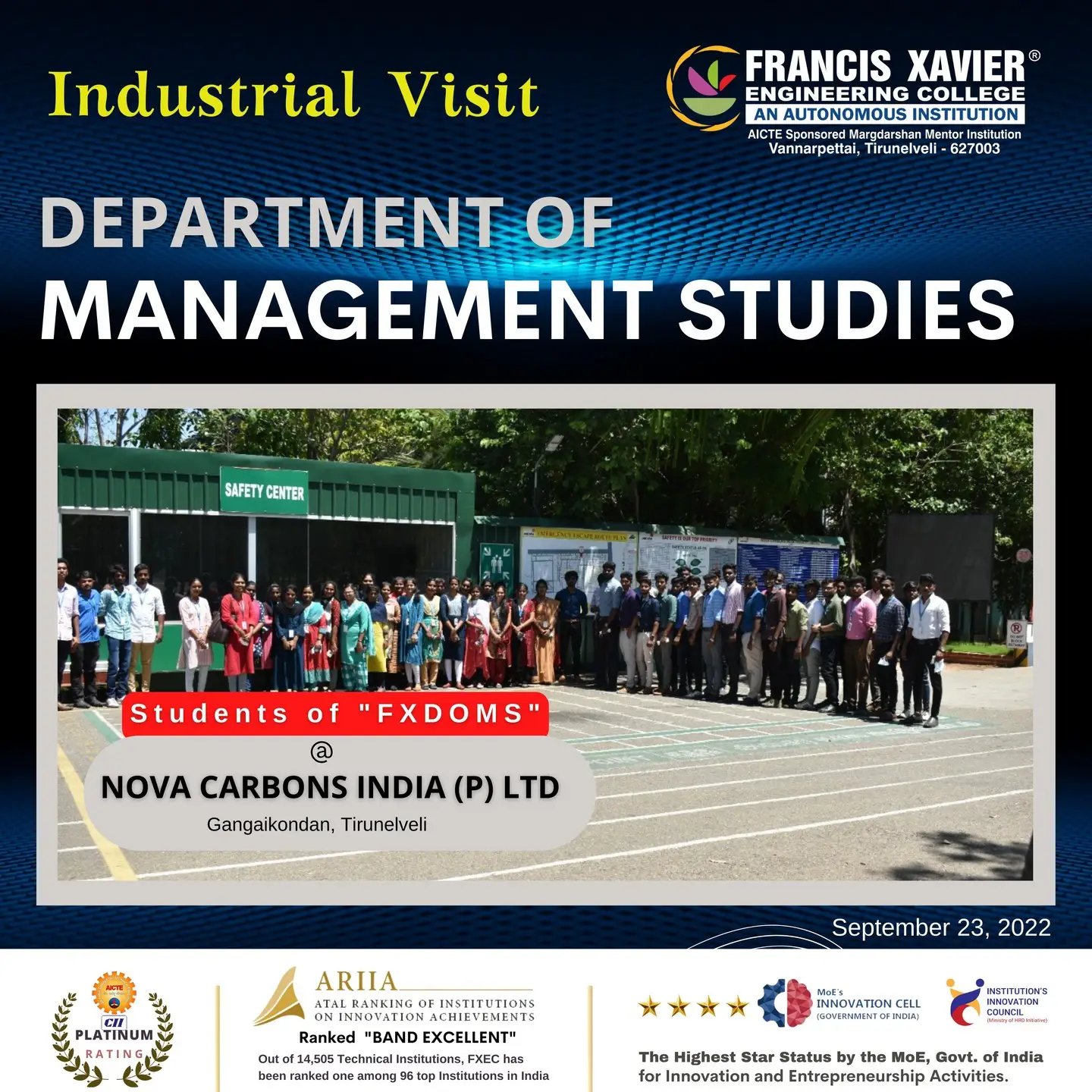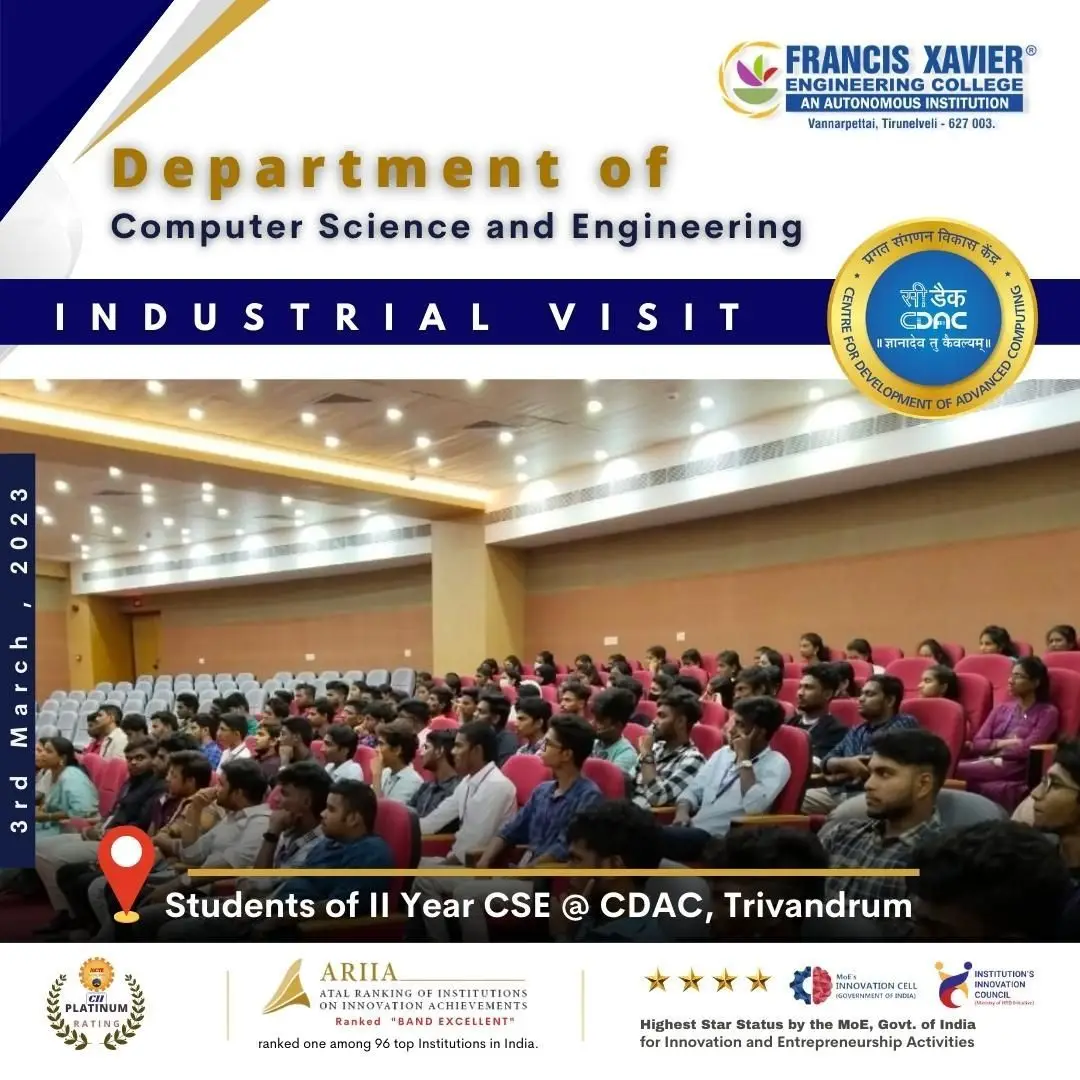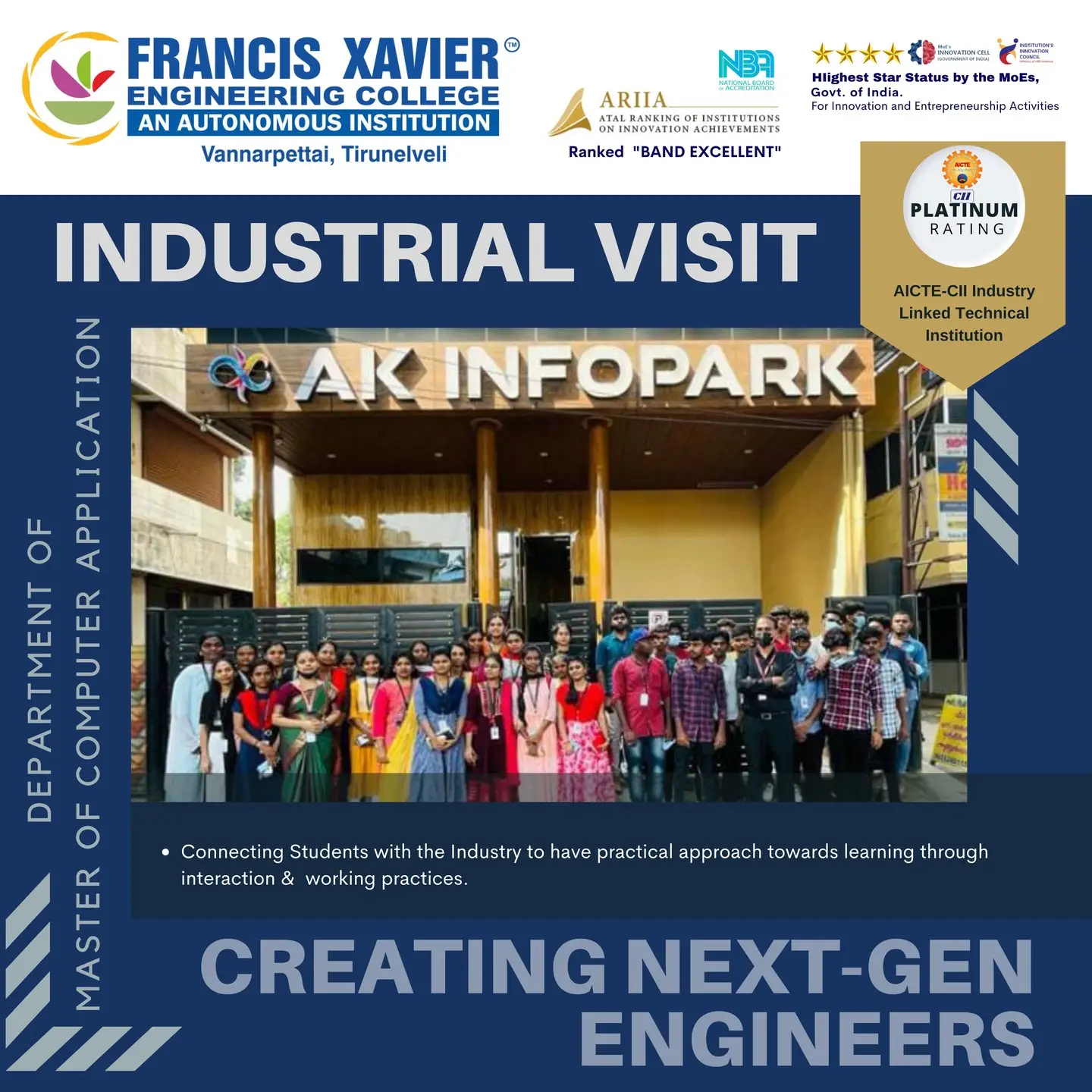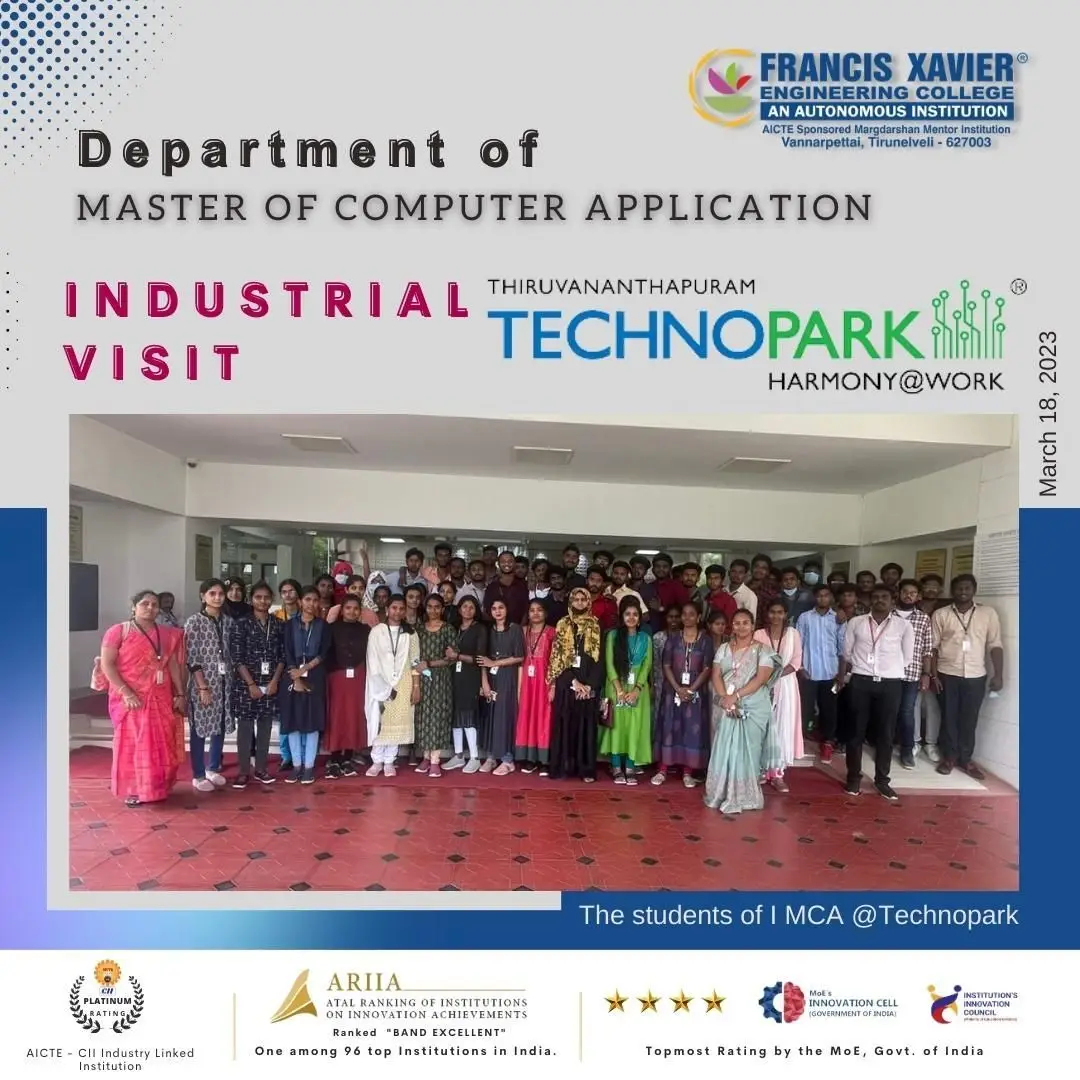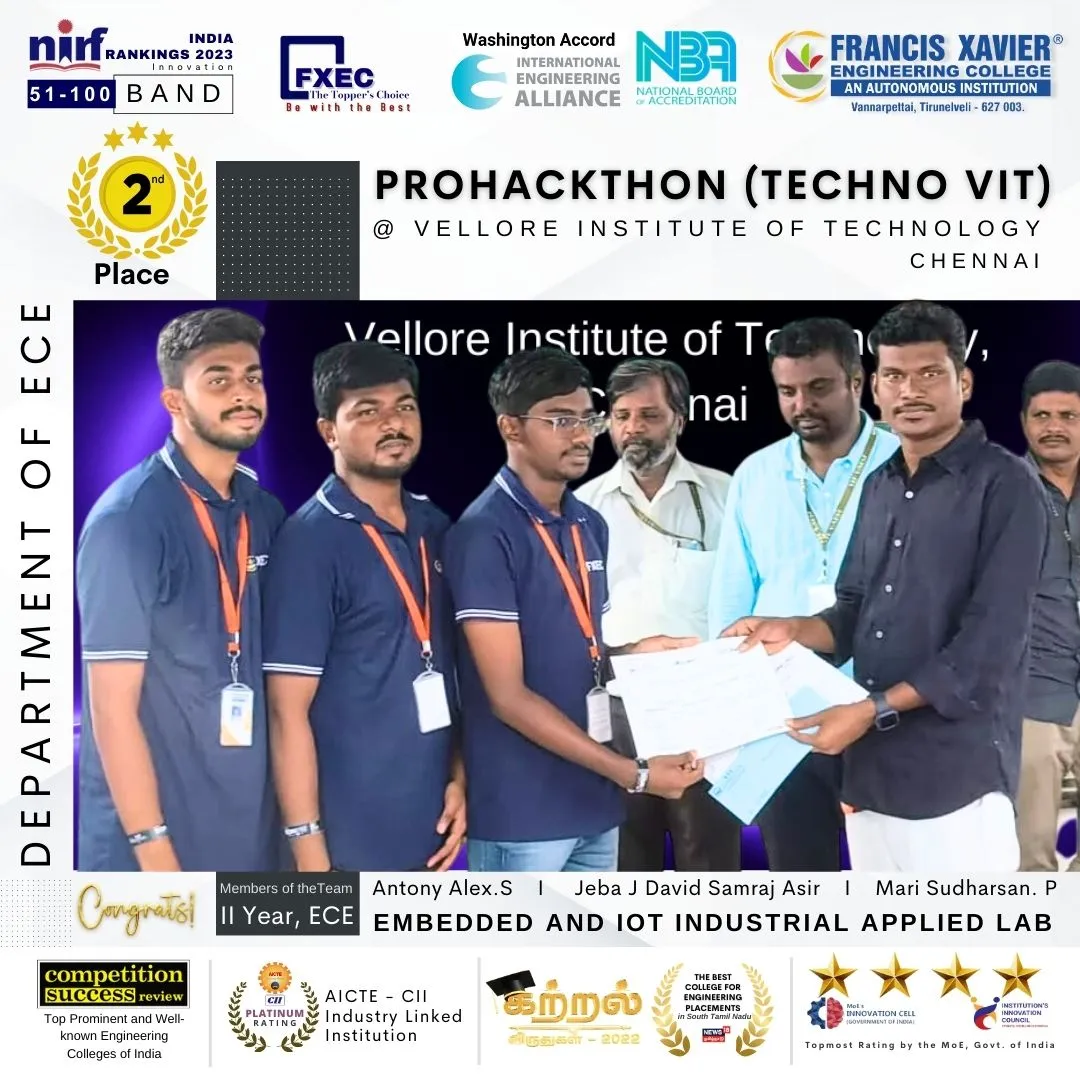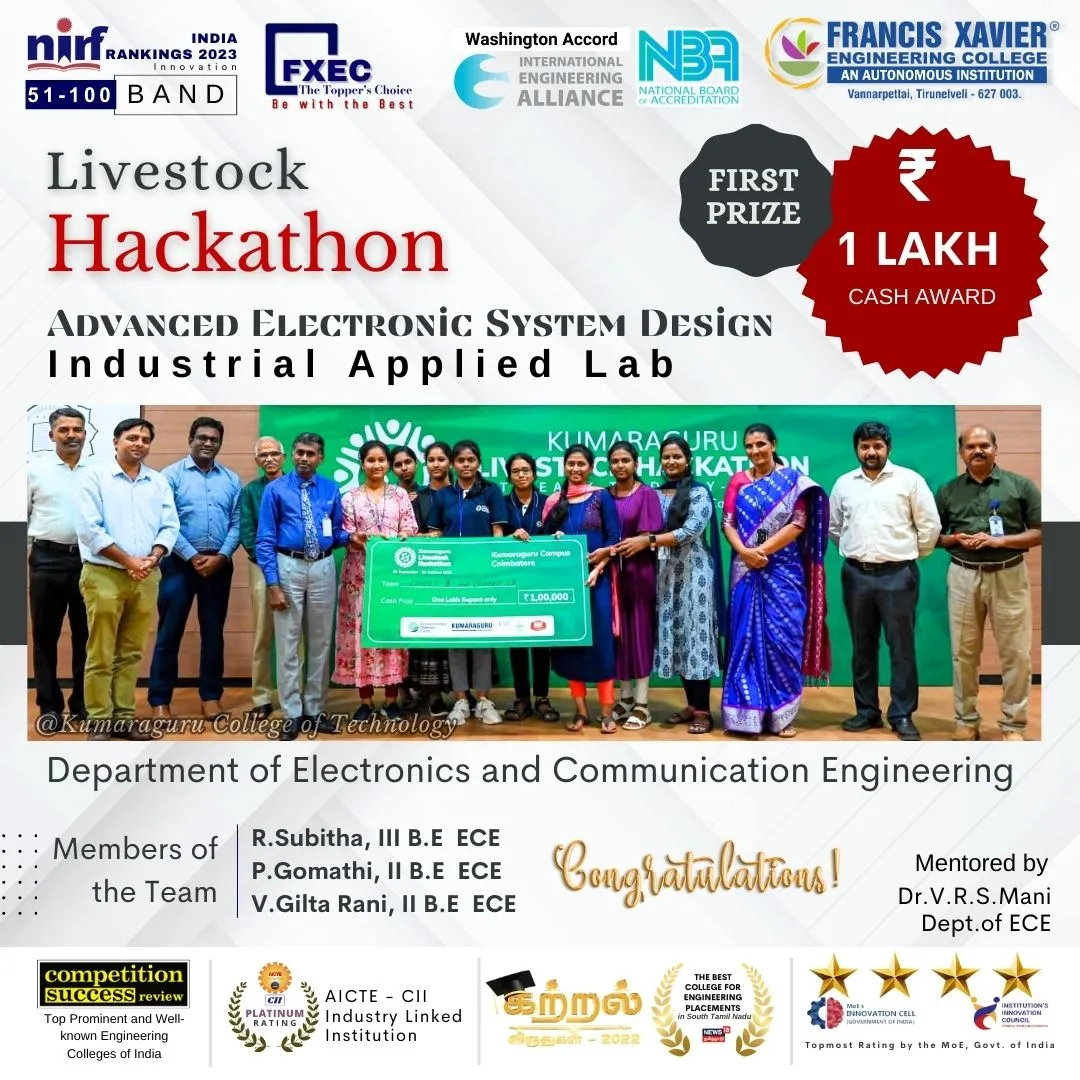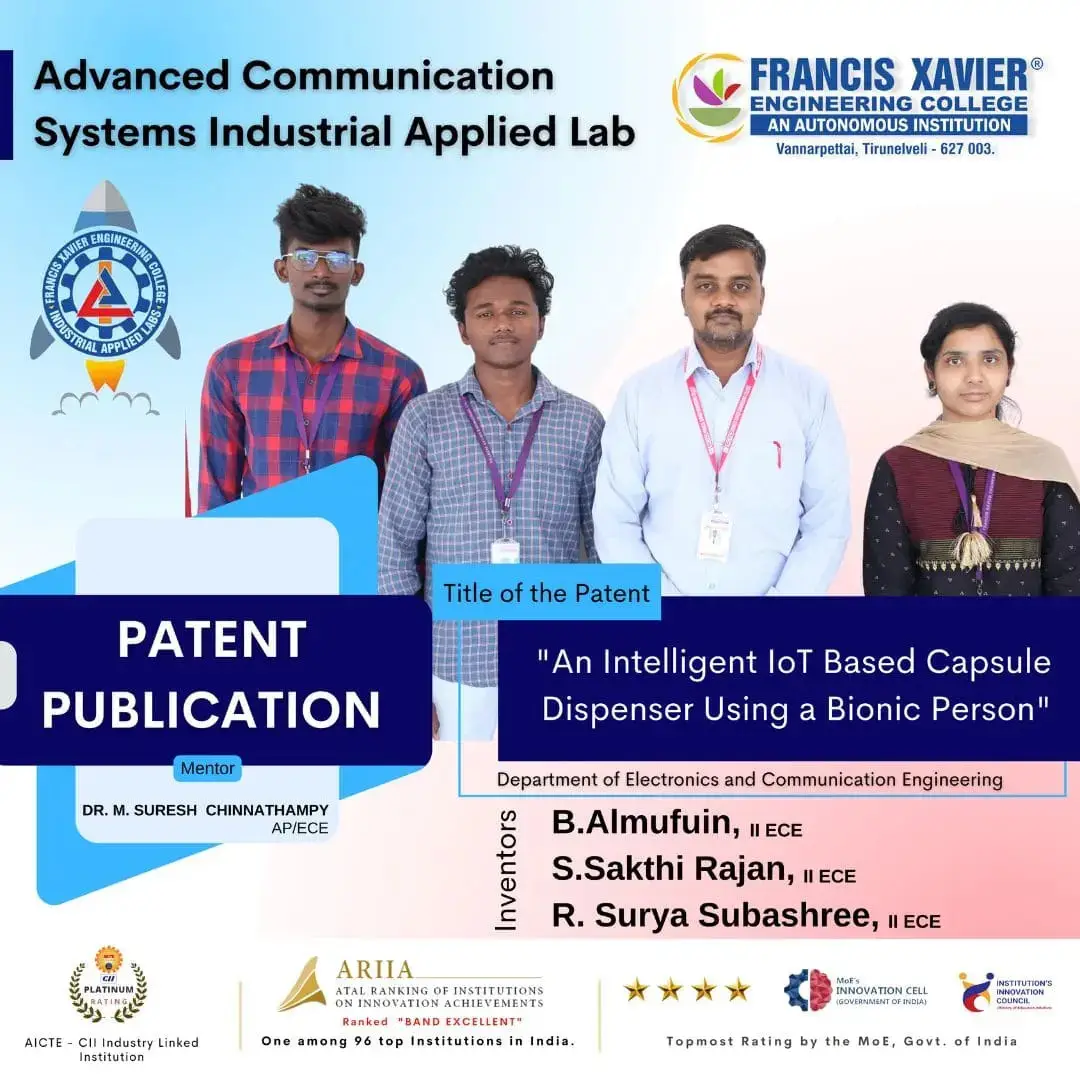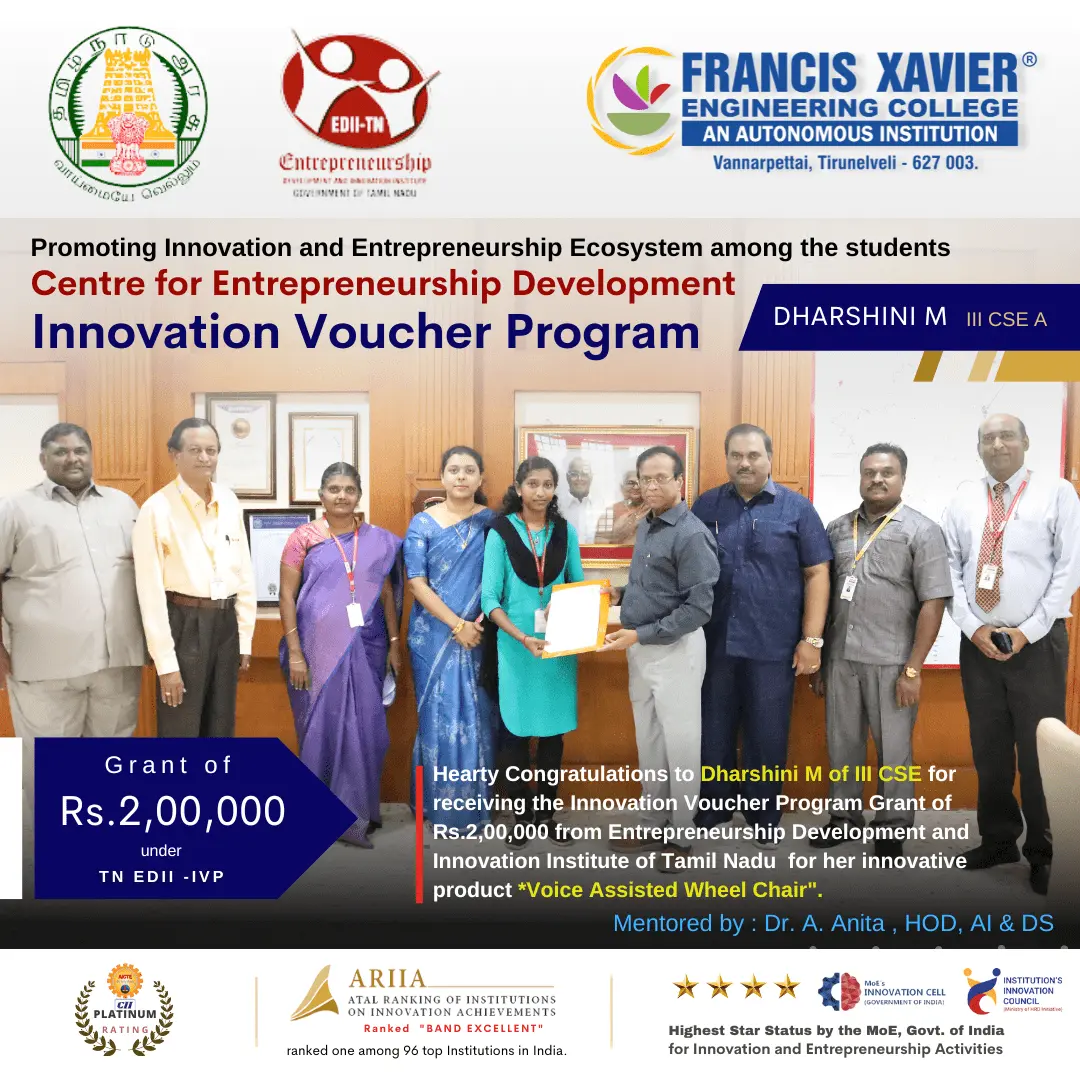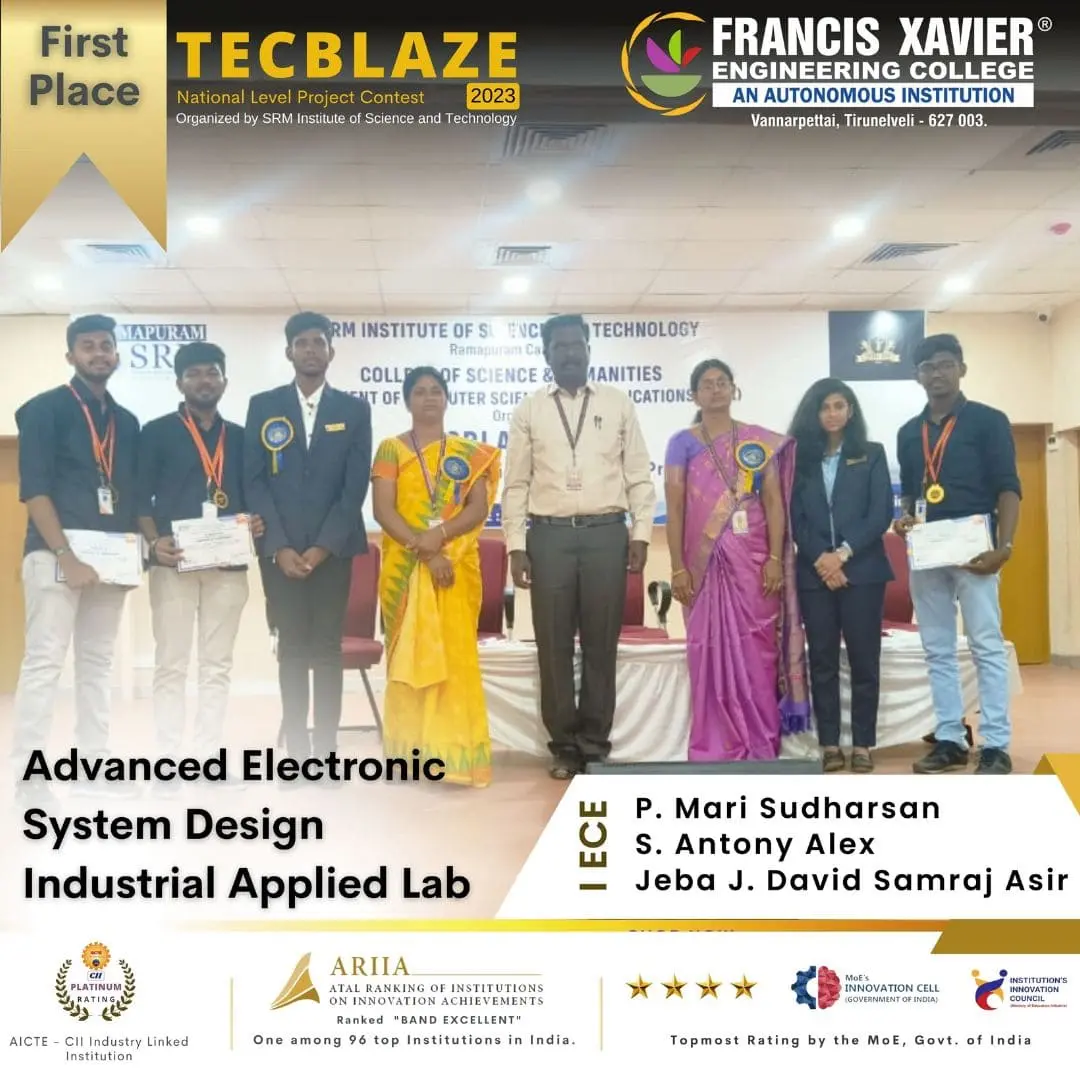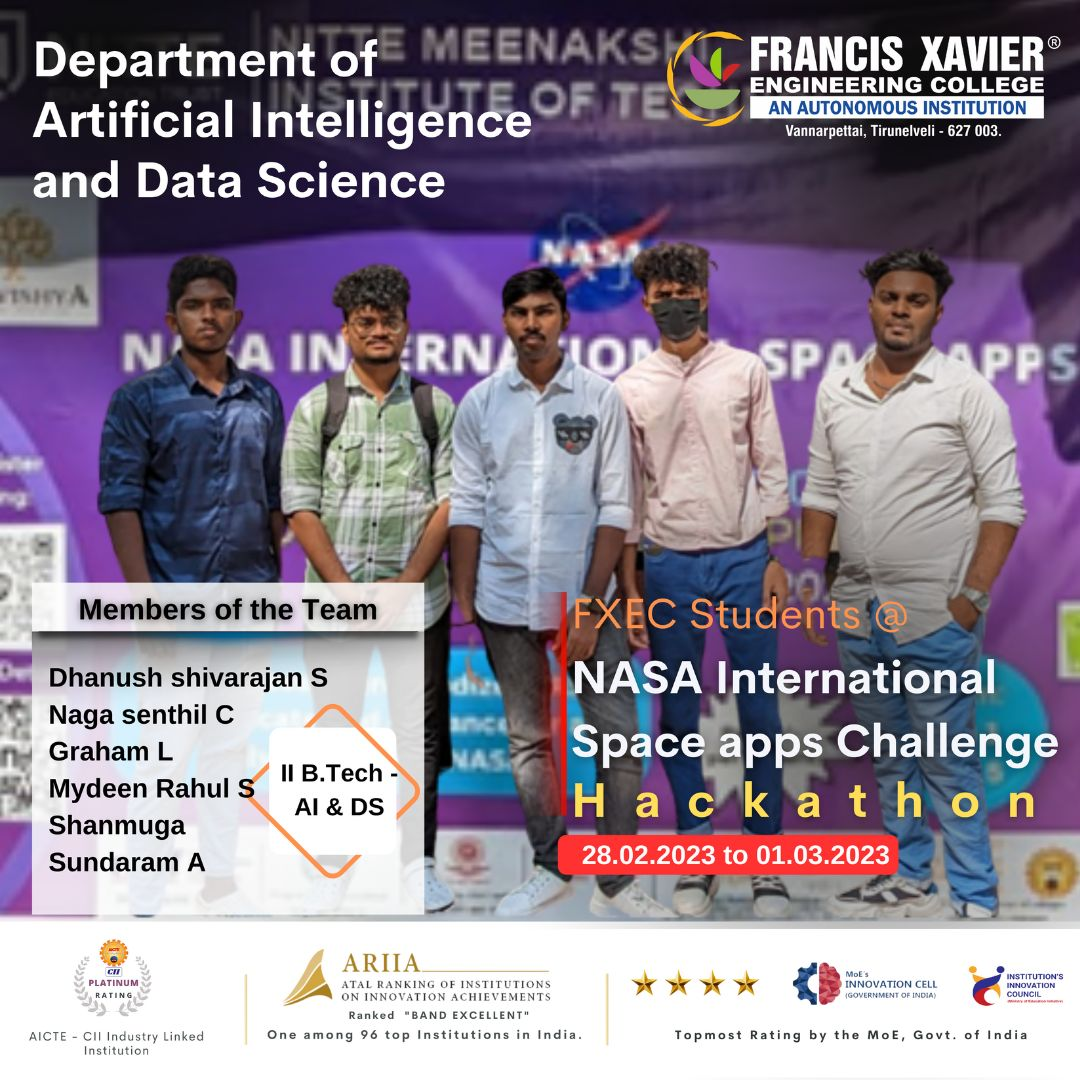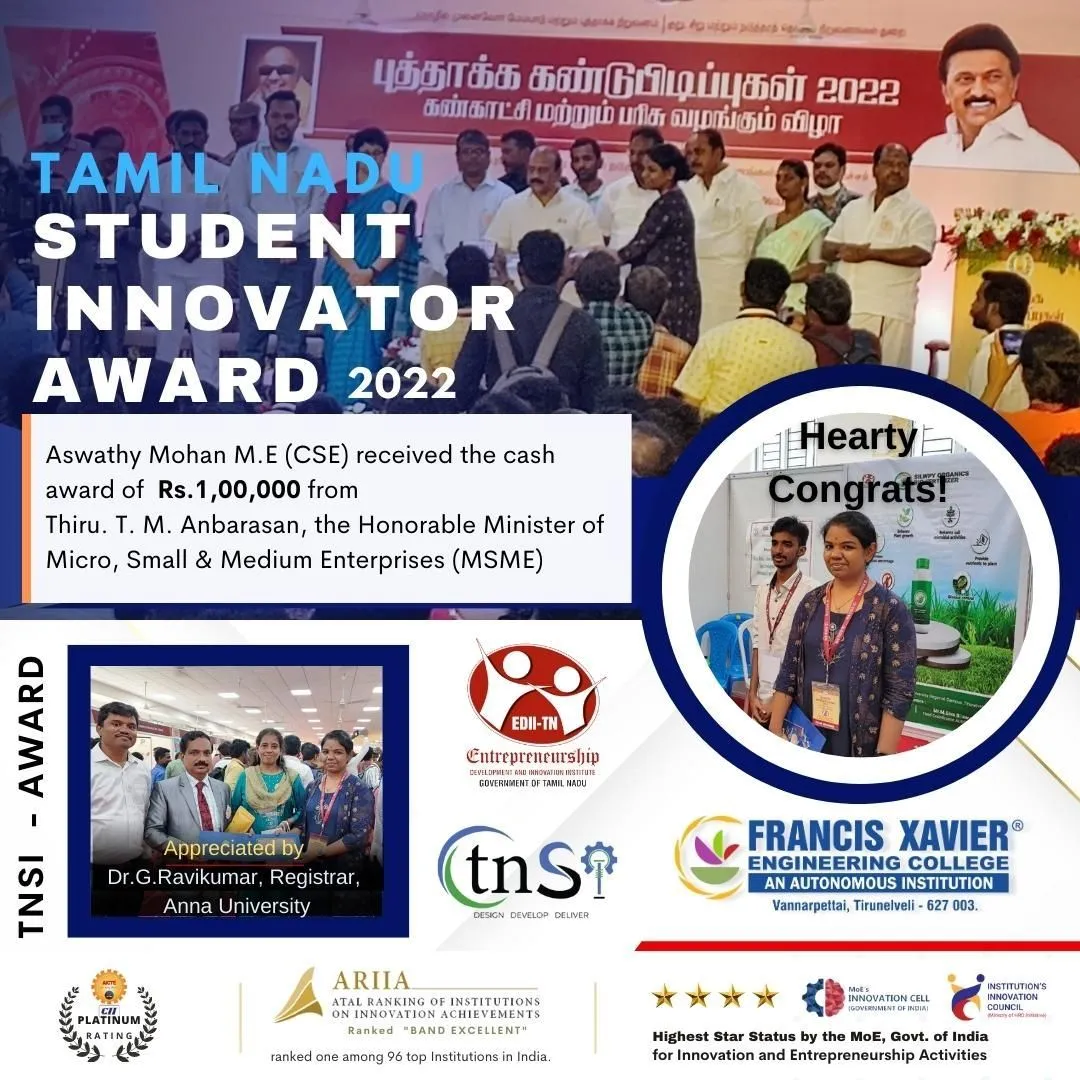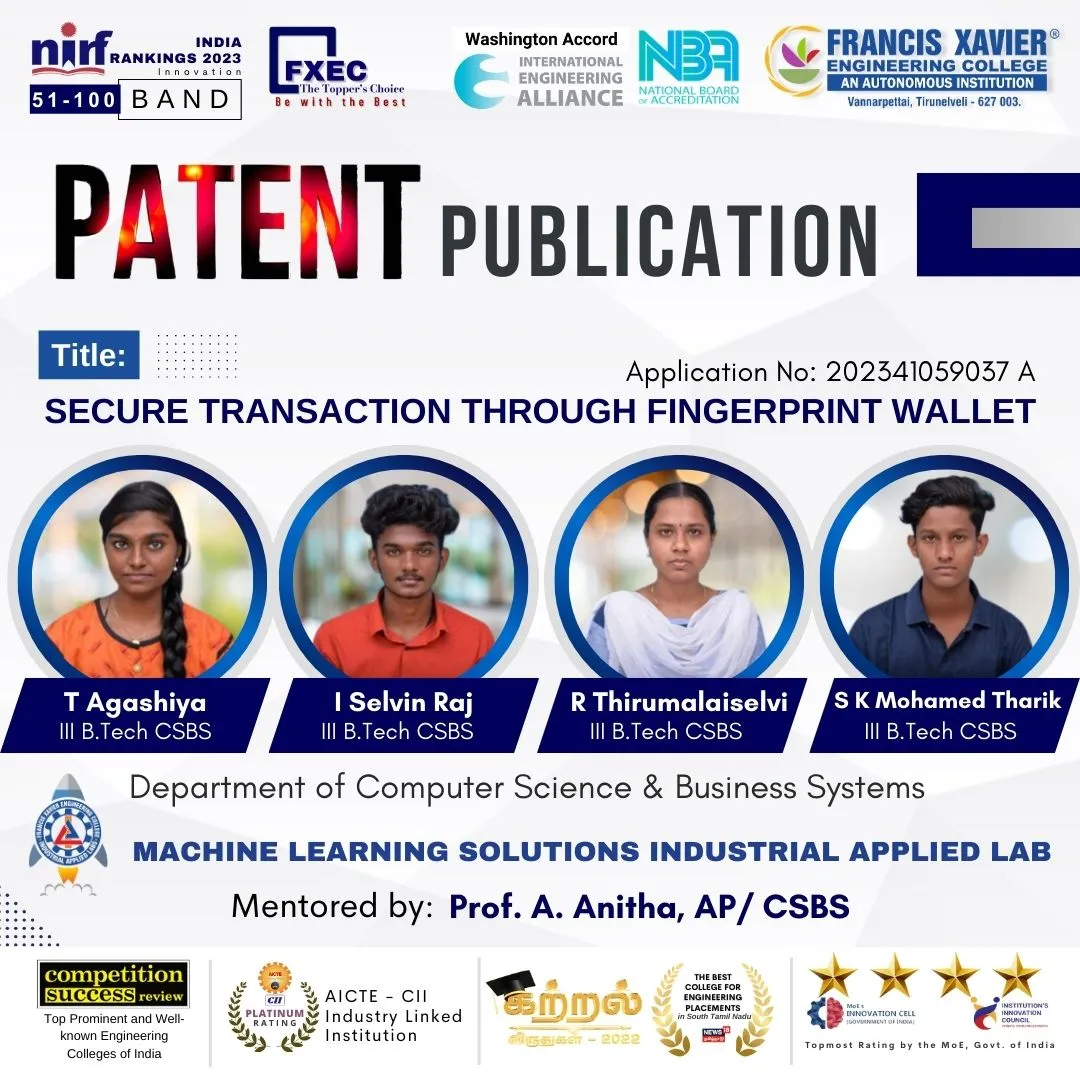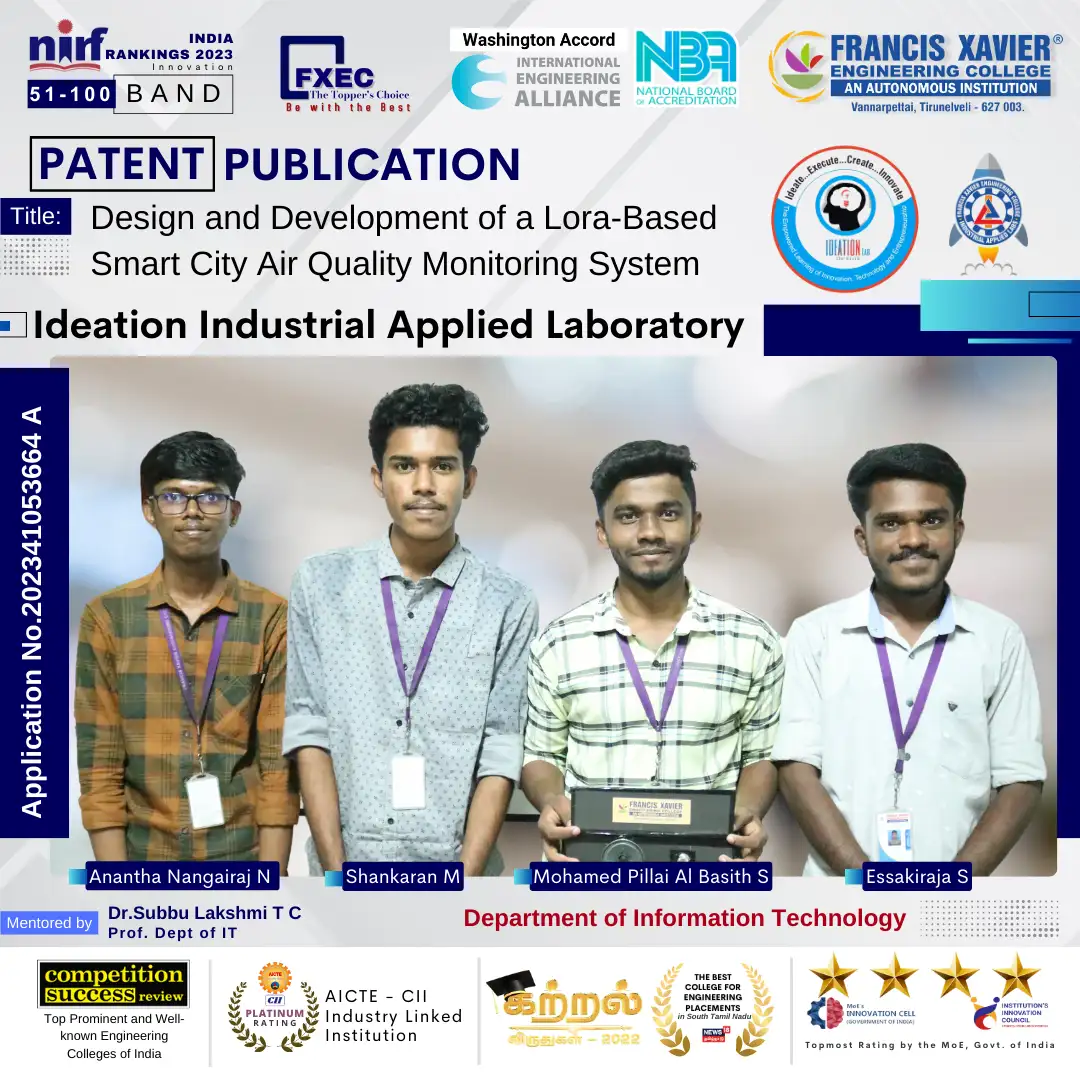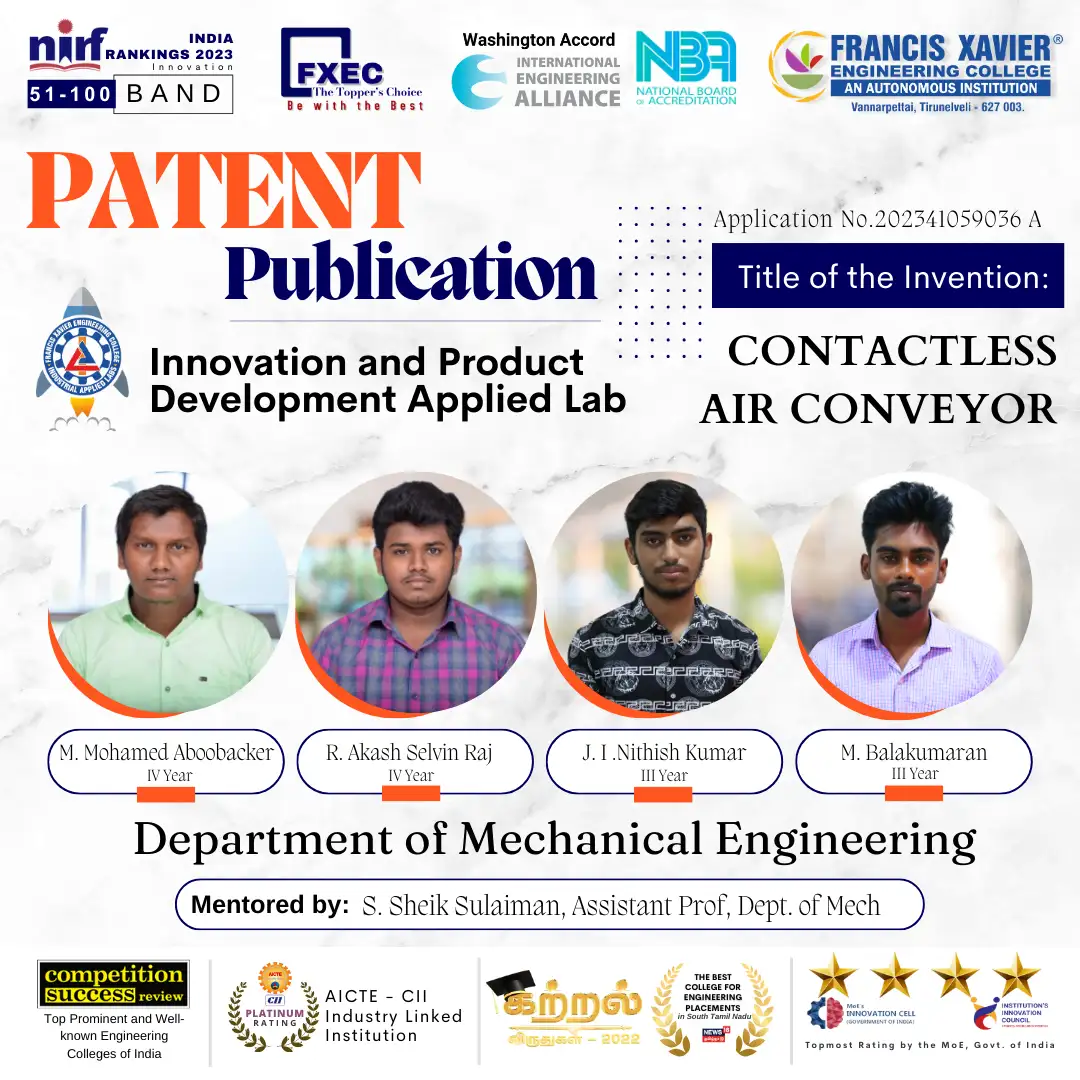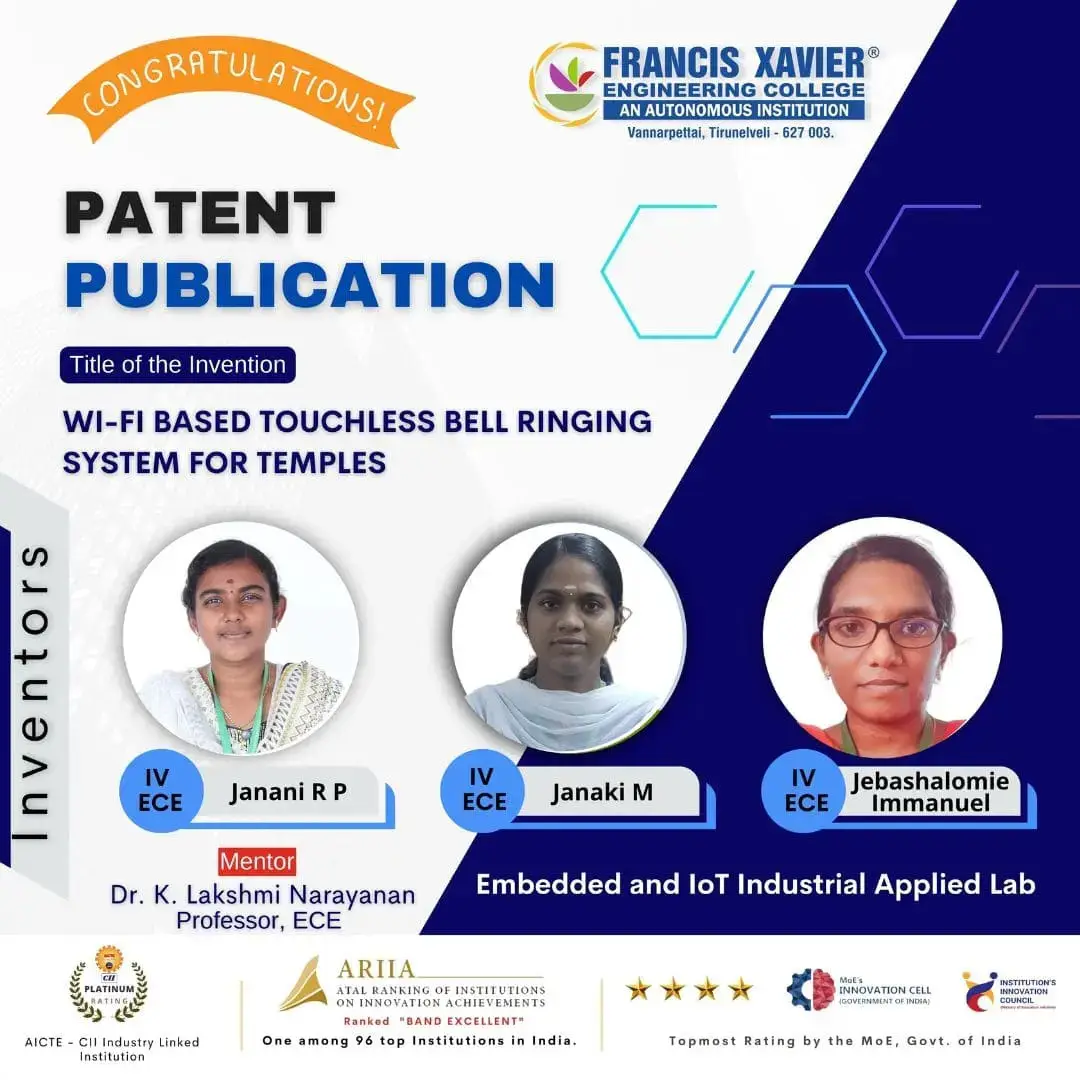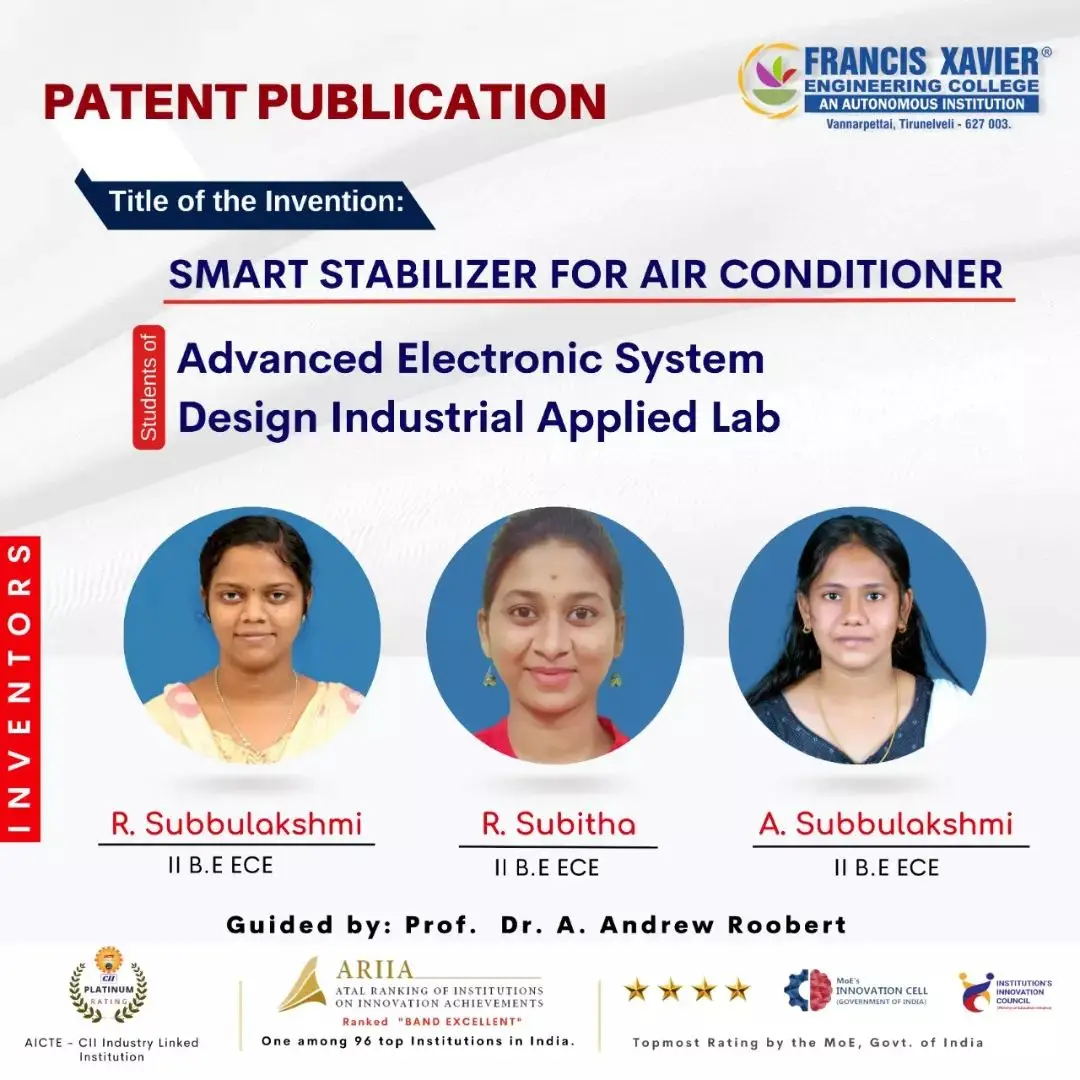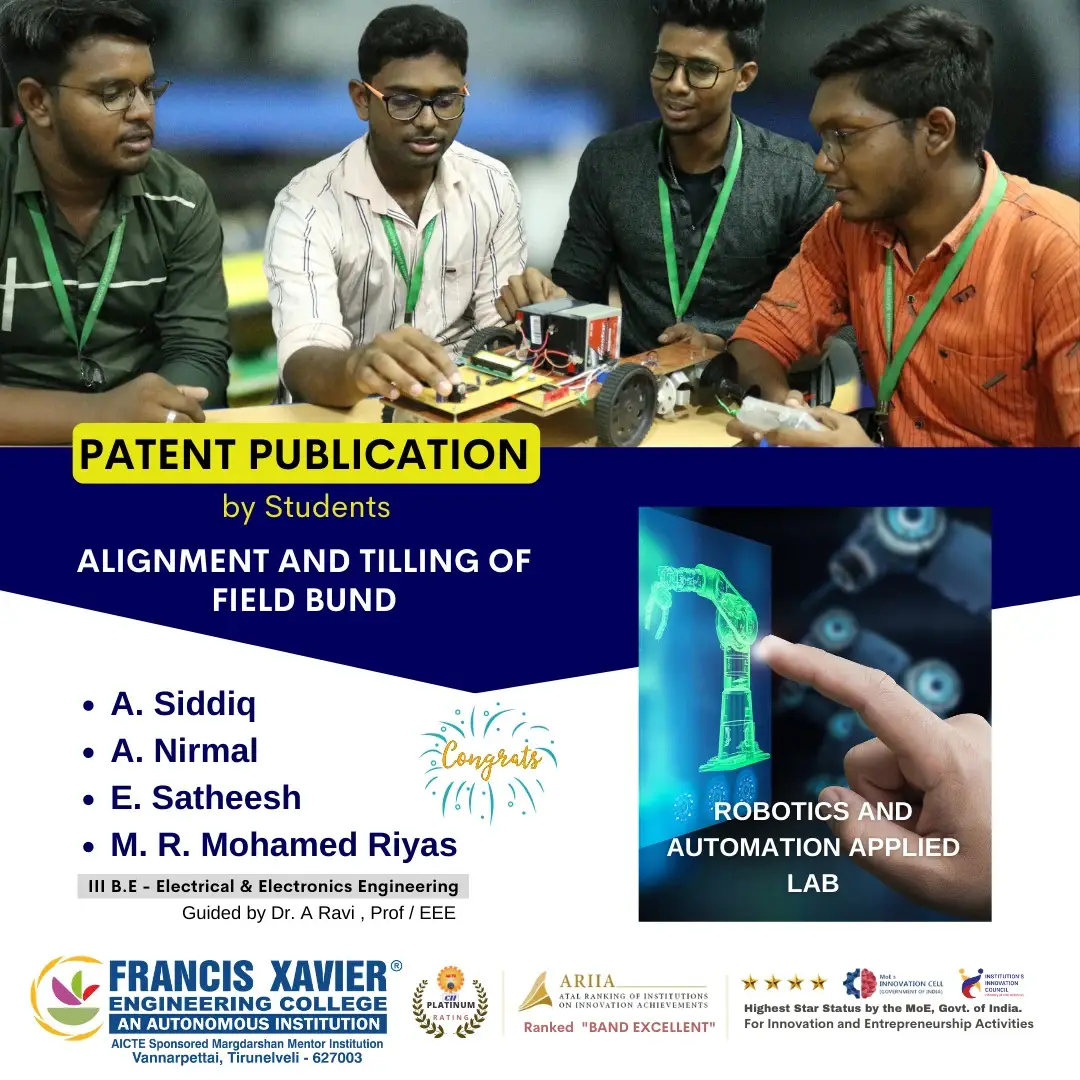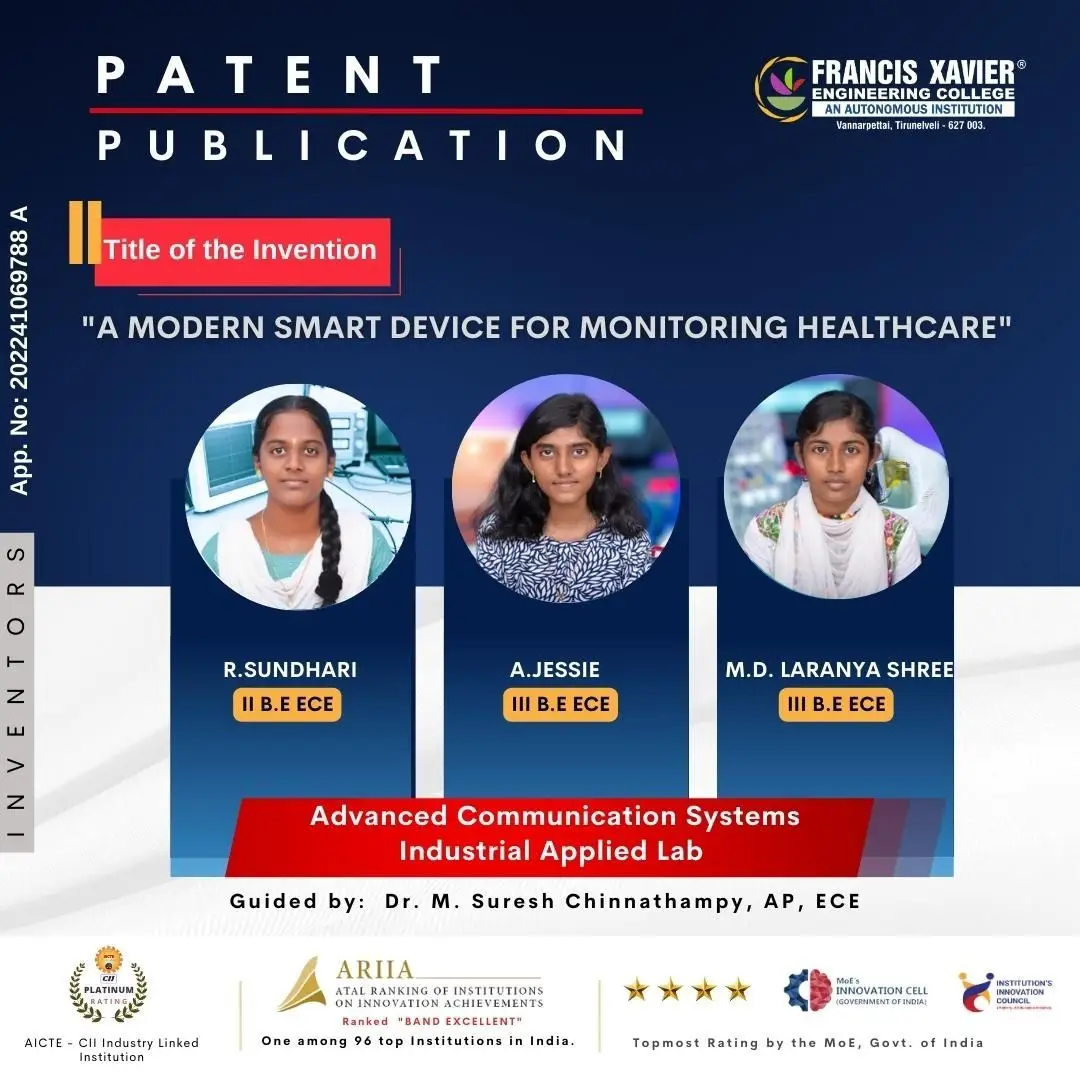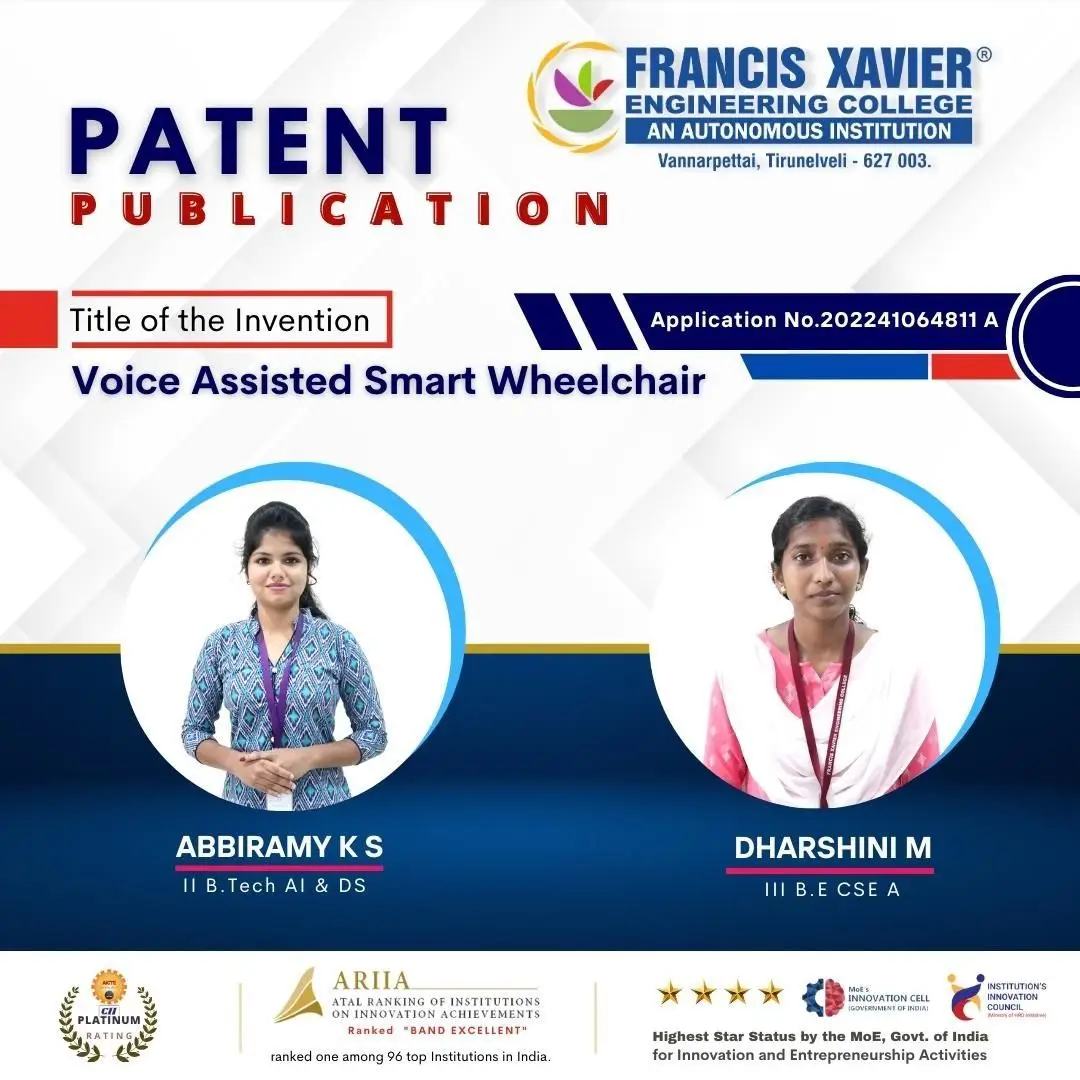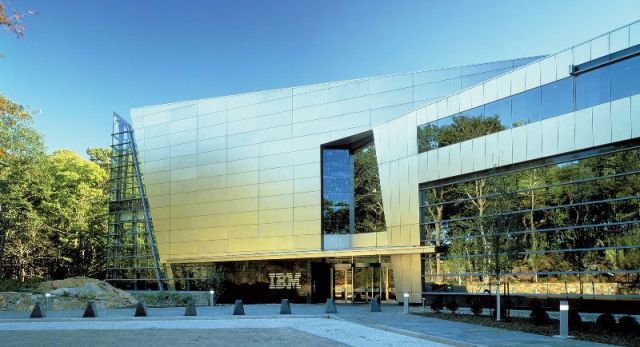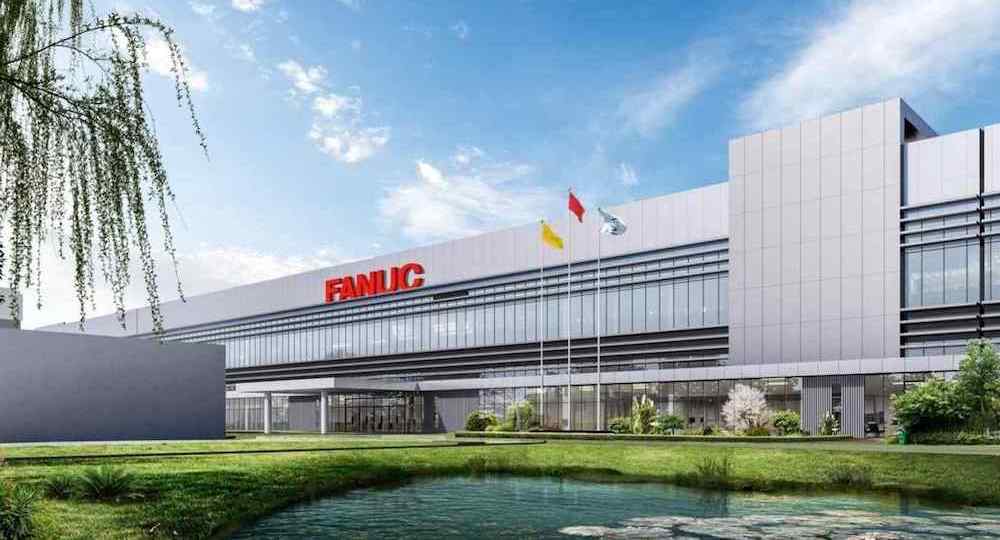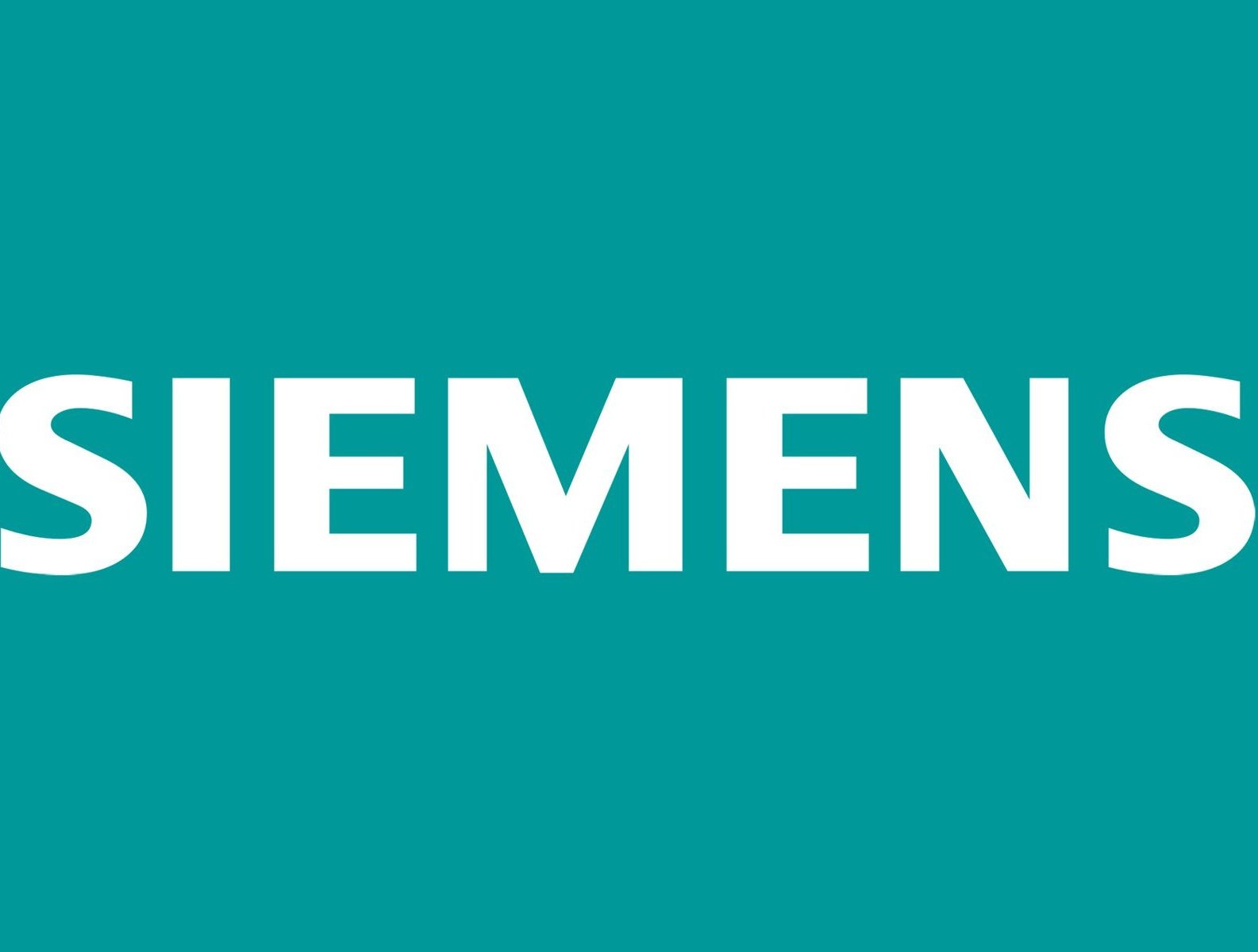Why CIVIL from FXEC
We make you the best version of yourself. Students are Given Skill Training in The Emerging Trends of Technology in Civil Engineering. Application of virtual Reality (VR) and Augmented Reality (AR) in Civil and Construction Industry. Sustainable Design with the focus on Zero-Energy Housing. Implementation of IoT in Engineering Projects.

Industry Supported Laboratories
Architecture and Design Lab

Academic Partnerships




Research
No. of paper Publications last 4 years : 23
No. of Patent published by faculty : 1
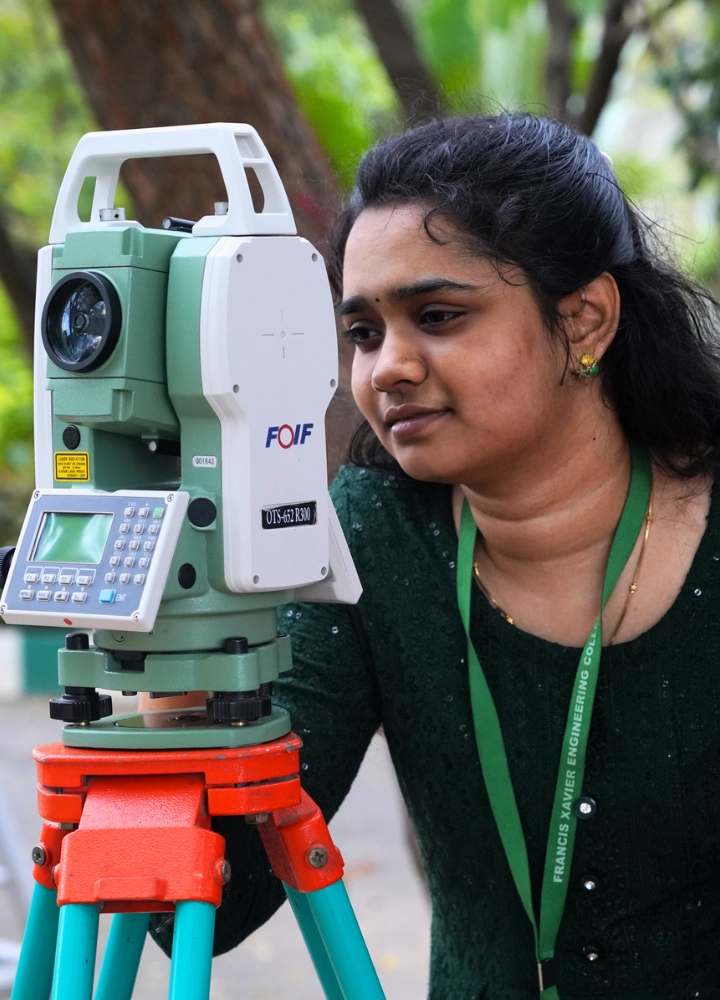
Programme Overview
The Civil Engineering Department was started in the year 2012 with an intake of 60 students. The intake has been increased to 180 students in the year 2014.The department has an eminent faculty team with specialization in Structural Engineering, Soil Mechanics, Environmental Engineering, Irrigation and Water resources, Construction Technology and Transportation Engineering. Our students have excelled in the Anna University exams and are securing Anna University ranks every year.
Civil Department, being one of the primary departments was established in year 2012 with the aim to produce world-class students with excellent analytical, communication skills, team building spirit and ethical behavior with ability to work in every type of environment. The educational curricula of the department of civil engineering are designed to promote innovative knowledge and critical problem solving thinking in the minds of budding engineers to face their future challenges.
- 714+ Total Offers
- 315 Internship with Salary
- 17 Lac Per Annum Highest Package
- 126 Companies Recruited
Vision
To create competitive and innovative civil engineers and to contribute technology for the sustainable development of the society.
Mission
- To perpetuate the noble tradition of civil engineering through quality education, research, consultancy and public service.
- To promote innovative and original thinking in the minds of young engineers to face the future challenges.
PEO, PO, PSO
B.E.Civil Engineering
Industry Institute Partnership
Our Key Recruiters




























